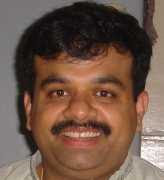Every minute, on average, two papers are added to the Science Citation Index. When Jasienski, a statistician at National-Louis University in Nowy Sacz, Poland, searched the index he found just 48 occurrences of "surprising" and "unexpected" in titles between 1900 and 1955, but 1660 between 2001 and 2005. The average annual increase in the figure is 10 per cent. At this rate, everything will be surprising before too long.
If grabbing attention is the goal, it is not working. Jasienski took a sample of 100 "surprising" papers and found that on average they were cited by other researchers no more often than 100 matched papers from the same journals. As he notes, this finding may merit a paper with "surprising" in its title.
Source: New Scientist




No comments:
Post a Comment